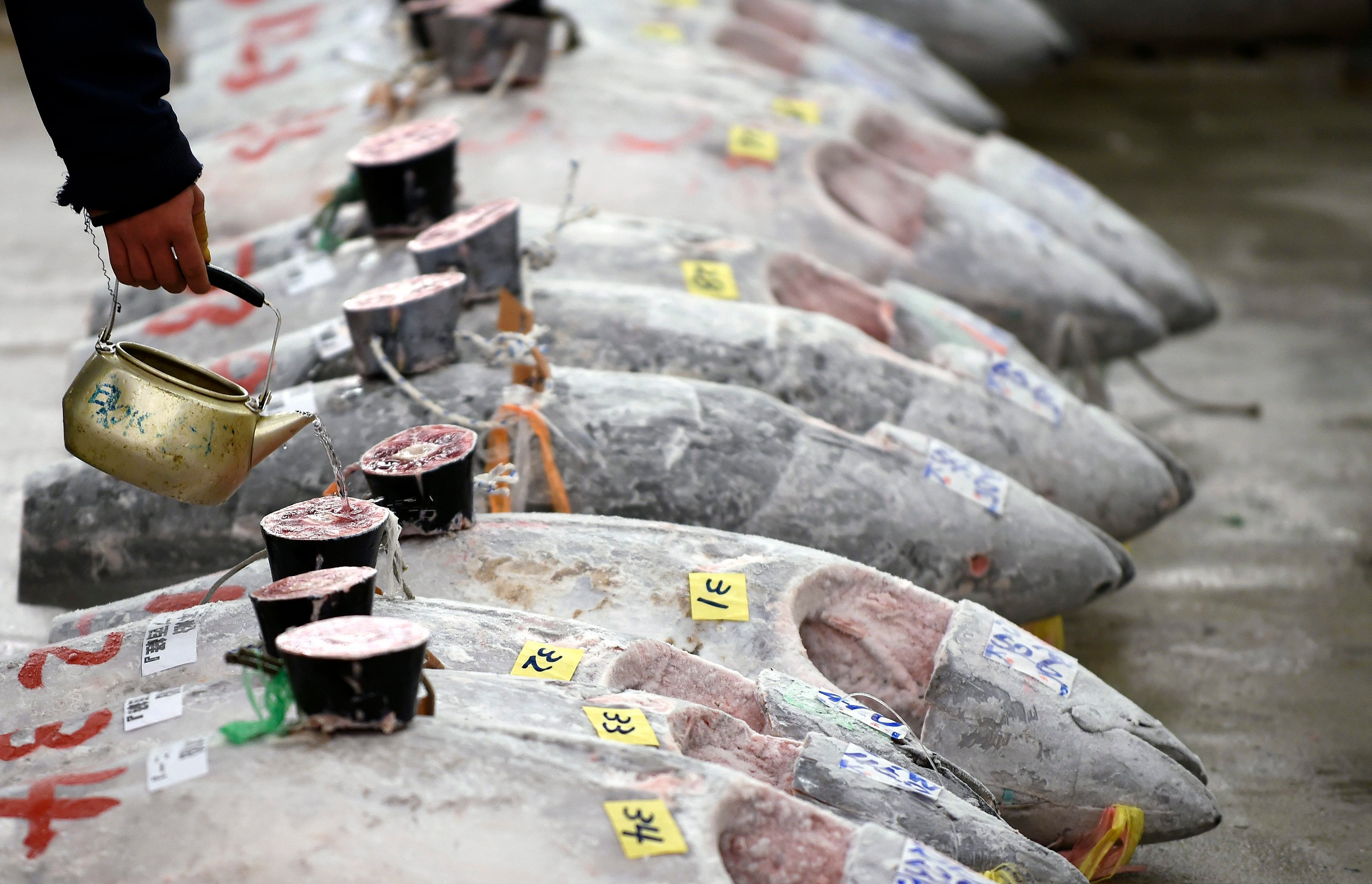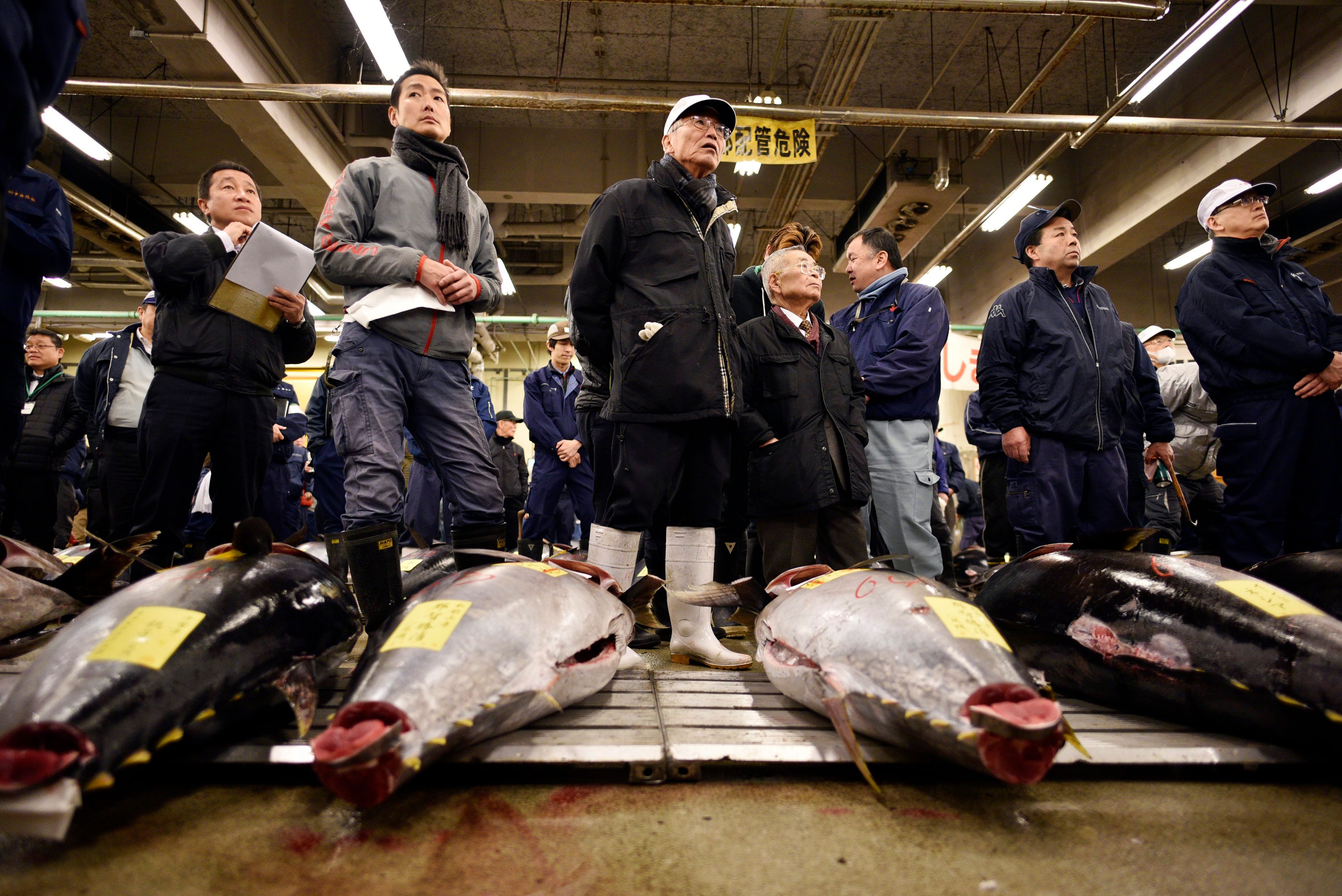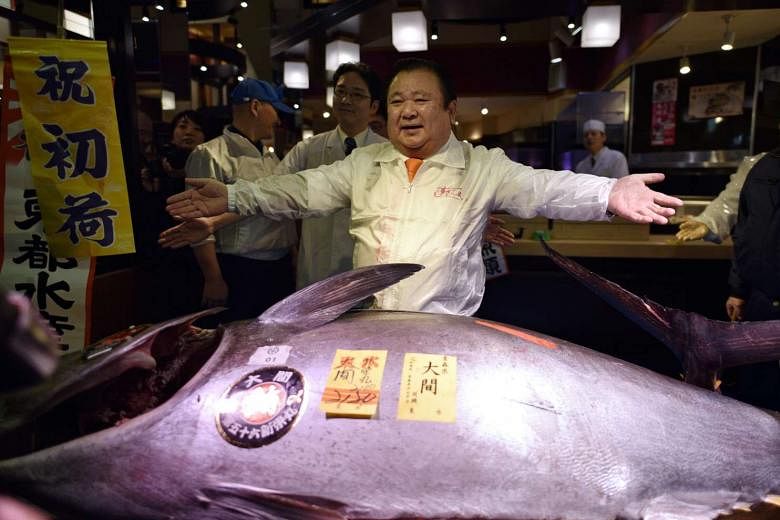TOKYO (AFP) - Japan's self-styled "Tuna King" has done it again - paying 74.2 million yen (S$914,589) for a single fish.
Sushi entrepreneur Kiyoshi Kimura paid the top price at the first auction of the new year at Tokyo's Tsukiji fish market on Thursday (Jan 5), bagging a prized bluefin tuna.
The head of the Sushizanmai chain is now the proud - if temporary - owner of a 212-kg fish.
At that price, a single piece of fatty tuna sushi would cost roughly US$85, or 25 times the US$3.40 that Mr Kimura charges for the product at his 51 stores across Japan.
"I feel it was a bit expensive, but I am happy that I was able to successfully win at auction a tuna of good shape and size," he said.
Mr Kimura has built his successful chain into a national brand by paying big money at Tsukiji's first auction every year - he has now won for six straight years - essentially using the event for publicity.
He paid a record US$1.8 million for a bluefin - a threatened species - at the New Year auction in 2013, outbidding a rival bidder from Hong Kong.
Last year, he faced no formidable rival and paid a bargain US$117,000 for a 200-kg tuna.
The prices may seem enormous, but Mr Kimura makes sure to get the most out of his money.
Every year, the boisterous auction, which takes place in the small hours, makes national headlines.

On Thursday, Mr Kimura made the rounds of Japan's major networks, telling viewers the tuna will be cut and distributed among his restaurants.
The 2017 auction could be the last at Tsukiji, the world's largest fish market.

It was originally supposed to move to a new location in November, but the plan was put on hold until at least late this year over concerns about toxic contamination at the new site.
Tokyo governor Yuriko Koike said in November that the move could even be delayed until the "spring of 2018" depending on results of health and environmental tests.
But she also held out the possibility of scrapping the relocation altogether.

